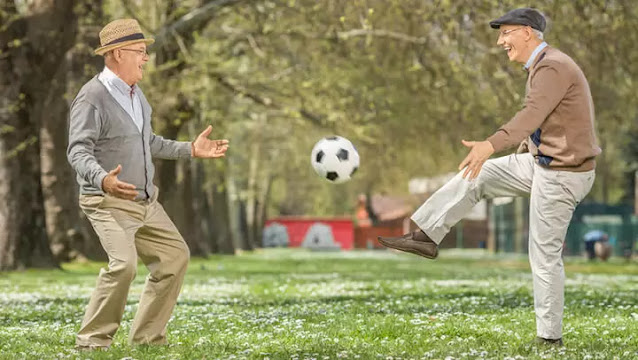5 Avoidable Reasons Seniors Are Put In Long Term Care Against Their Will
The Message Is Loud and Clear: Seniors Want to Age in Place, in the Comfort and Security of Their Own Home
1: Falling at Home
The good news is that the risk of falling can be significantly reduced by making some simple modifications around your home. A Geriatric Nurse Specialist can help assess your home for dangers and suggest a few simple steps to reduce your risk of falls and injury in your home. Shylo's Registered Nurses, with decades of experience supporting seniors in the community, can quickly identify factors that can increase a senior's risk to fall such as reduced eyesight and issues with balance and gait. Age-related loss of muscle mass or Sarcopenia, and blood pressure that drops too much when you get up from lying down or sitting or Postural Hypotension, are additional risk factors for falling.
According to the Canada Mortgage and Housing Corporation, home modifications can significantly reduce the risk of falls and accidents.2 Evidence shows that preventing falls requires interventions that target more than one risk factor.2 Slippery floors, area rugs, clutter, poor lighting, and lack of handrails can contribute to falls. Falls caused by detached throw rugs or loose carpets are a major cause of injury in older adults. The danger of these unsecure rugs is due to their tendency to bunch up, making them easy to trip over.
Of course, moving to a one-level townhouse or condo can also be a sensible choice for individuals with chronic mobility challenges. We encourage adults considering downsizing to have a moving concierge help to plan your move, and use a reliable local mover to execute the move.
2: Medication Errors
Although it may be appropriate for some seniors to take several drugs, the use of multiple medications, known as polypharmacy, increases the risks of drug interactions and side effects. The number of seniors taking five or more drugs was more than double those taking less than five drugs. Roughly 69%, or 1.8 million of all seniors in Canada, were taking five or more drugs from different drug classes, with nearly 10% (293,441 seniors) taking 15 or more. This increased with age, with those who were 85+ being twice as likely to take at least 15 drug classes compared with those in the 65–74 age group.5
Medication organizers and reminders can help seniors manage their medications effectively. Pharmacists can also provide medication reviews to ensure safe usage. Home Care RNs and Home Support Workers can also assist with medication administration and oversee that seniors take their medications as prescribed and watch for complications related to the over or under use of medications.
3: Poor Nutrition
The most important factor in improving nutrition for seniors is having them actually eat the food served to them. There's no benefit moving a senior into a residence or facility that offers bland food, or one that cannot accommodate the individual's taste preferences. Congregate care homes must prepare meals that are safe for all their residents, meaning meals will be low-sodium, low-fat and no added sugar. This race to the bottom of nutritional risk factors can lead to bland and unappealing meals being served.
Providing nutritious meals or meal delivery services can ensure that seniors maintain a healthy and balanced diet. Regular visits from Home Care Nurses can assess their nutritional needs, consider health concerns such as heart disease or diabetes, and help Caregivers plan meals that are well-balanced and nutritional while incorporating the client's food preferences.
We work hard all our lives and should not be deprived of our favourite treats just because we're over 65. While no one will thrive on a diet of chocolate bars and soda pop, we can all enjoy tasty desserts when served as part of a sensible meal plan.
4: Safety and Security Concerns
Emergency contact numbers should be handy and copies kept near the phone in rooms the senior frequents such as the kitchen, bedroom, living room, office, garage and basement if there is one. Seniors should have smoke and CO2 detectors and fire extinguishers in their homes. Fire safety education and regular fire drills can help seniors respond effectively to emergencies. Having a monitored security system helps both seniors and their loved one feel more secure in the event of an actual emergency.
This abuse of seniors constitutes a violation of human rights and includes physical, sexual, psychological and emotional abuse; financial and material abuse; abandonment; neglect; and serious loss of dignity and respect. Regular visits by a Geriatric Nurse Specialist can watch for signs of abuse and assist the senior to get the proper support they need.
To report suspected Senior Abuse call SAIL at 1-866-437-1940 [Toll Free] or 604-437-1940 in the Vancouver Lower Mainland.
5: Isolation
Residents living in congregate care residences can experience significant social isolation and grief that results in loneliness and other negative health consequences. Just like in high school, assisted living facilities and nursing homes have their share of mean girls and bullies.
Seniors who live alone, whether it be in a family home, a condo, or a senior's residence, will benefit from a regular Companion who can spend invaluable one-on-one time with them, and safely escort them shopping and to appointments.
Book a complementary Home Safety Assessment today with one of Shylo's Registered Geriatric Nurse Specialists to identify risk factors in your home. Together we can discuss simple home modifications to allow you to safely age in place. We can also discuss care options so you can maintain control of how and where you chose to Age in Place. Seniors have worked hard their entire lives and should not lose their autonomy just because they experience a health issue.
Resources:
1. https://www.canada.ca/en/public-health/services/health-promotion/aging-seniors/publications/publications-general-public/seniors-falls-canada-second-report/seniors-falls-canada-infographic.html
2. https://www.canada.ca/en/public-health/services/health-promotion/aging-seniors/publications/publications-general-public/seniors-falls-canada-second-report.html
3. https://www.cihi.ca/en/drug-use-among-seniors-in-canada
4. https://www.cihi.ca/sites/default/files/document/covid-19-rapid-response-long-term-care-snapshot-en.pdf
5. https://www.longwoods.com/content/23192/medication-use-among-canadian-seniors#
6. https://theconsumervoice.org/issues/issue_details/misusing-antipsychotics#














































